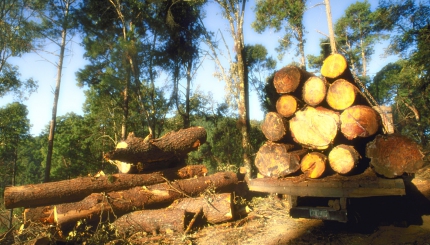
In October 2010, the European Union adopted the EU Timber Regulation (Regulation 995/2010) to prevent sales of illegal timber and timber products on the EU internal market.
From 3 March 2013, any operator who places timber or timber products on the EU market for the first time must ensure that they have been legally produced.
The EU Timber Regulation will affect thousands of companies, small and large, that are producing timber domestically or importing timber or timber products into the EU.
It covers a wide range of timber products, including plywood, veneer, particle board and furniture, but exempts some products, in particular printed media.
The Timber Regulation includes three key obligations:
- It prohibits the placing of illegally harvested timber and products derived from such timberon the EU market, whether they are of domestic or imported origin.
- Timber accompanied by a FLEGT (Forest Law Enforcement, Governance and Trade) or CITES (Convention on International Trade in Endangered Species) license will be accepted as legal. In all other cases, operators must exercise 'due diligence' when they sell imported and domestic timber or timber products.
- Traders (those after the operators in the supply chain) need to keep records of their suppliers (and customers). In this way the operators can always be traced.
- FSC supports without reservation the goal of banning illegally harvested timber from the EU market. We are working to ensure that our systems fulfill the requirements of the regulation when it enters into force in 2013, so that FSC certificate holders do not have to apply any additional due diligence activities for their FSC materials. We will be seeking formal confirmation from the EU authorities that this will be the case.
Source:
http://ic.fsc.org/timber-regulation.46.htm





